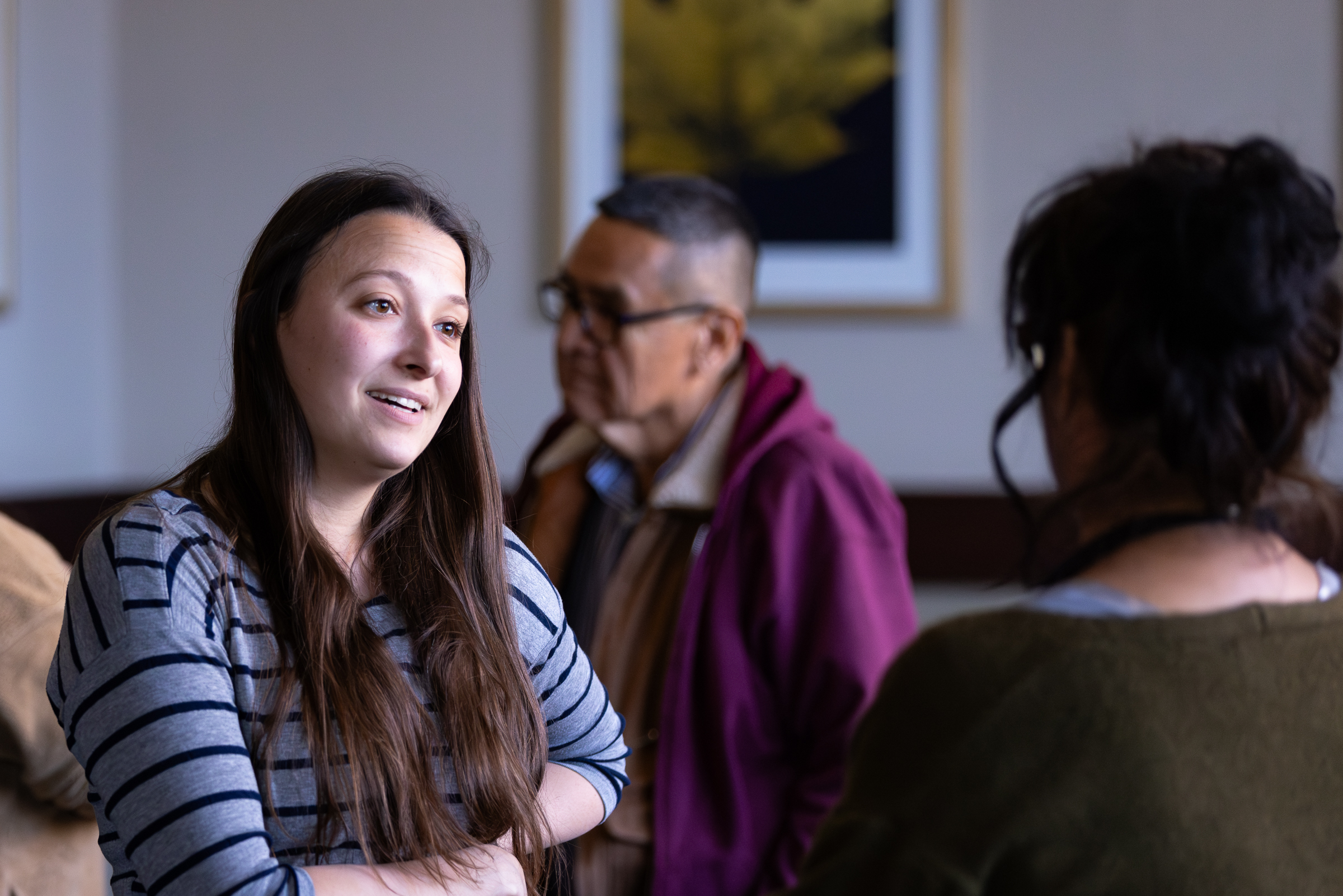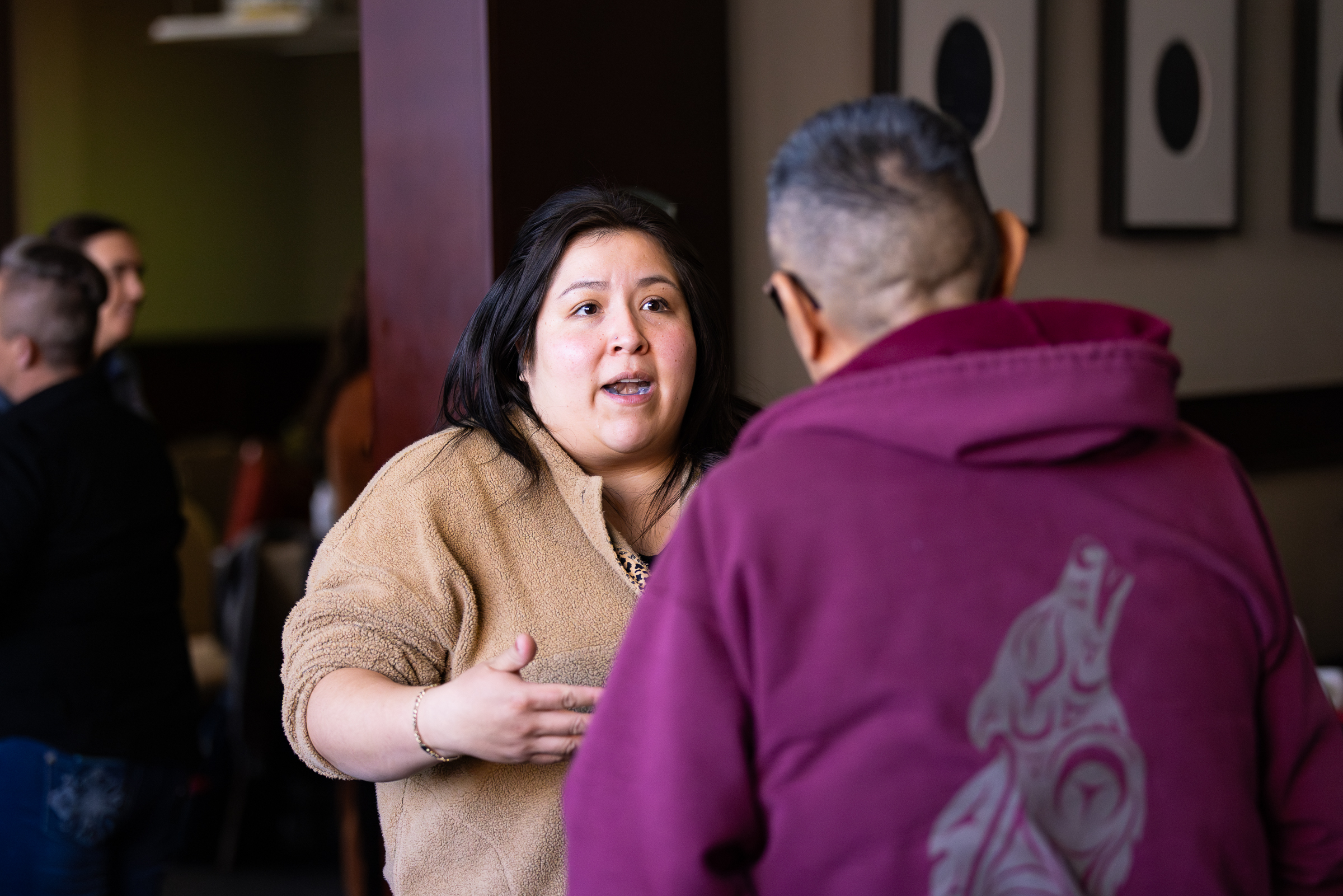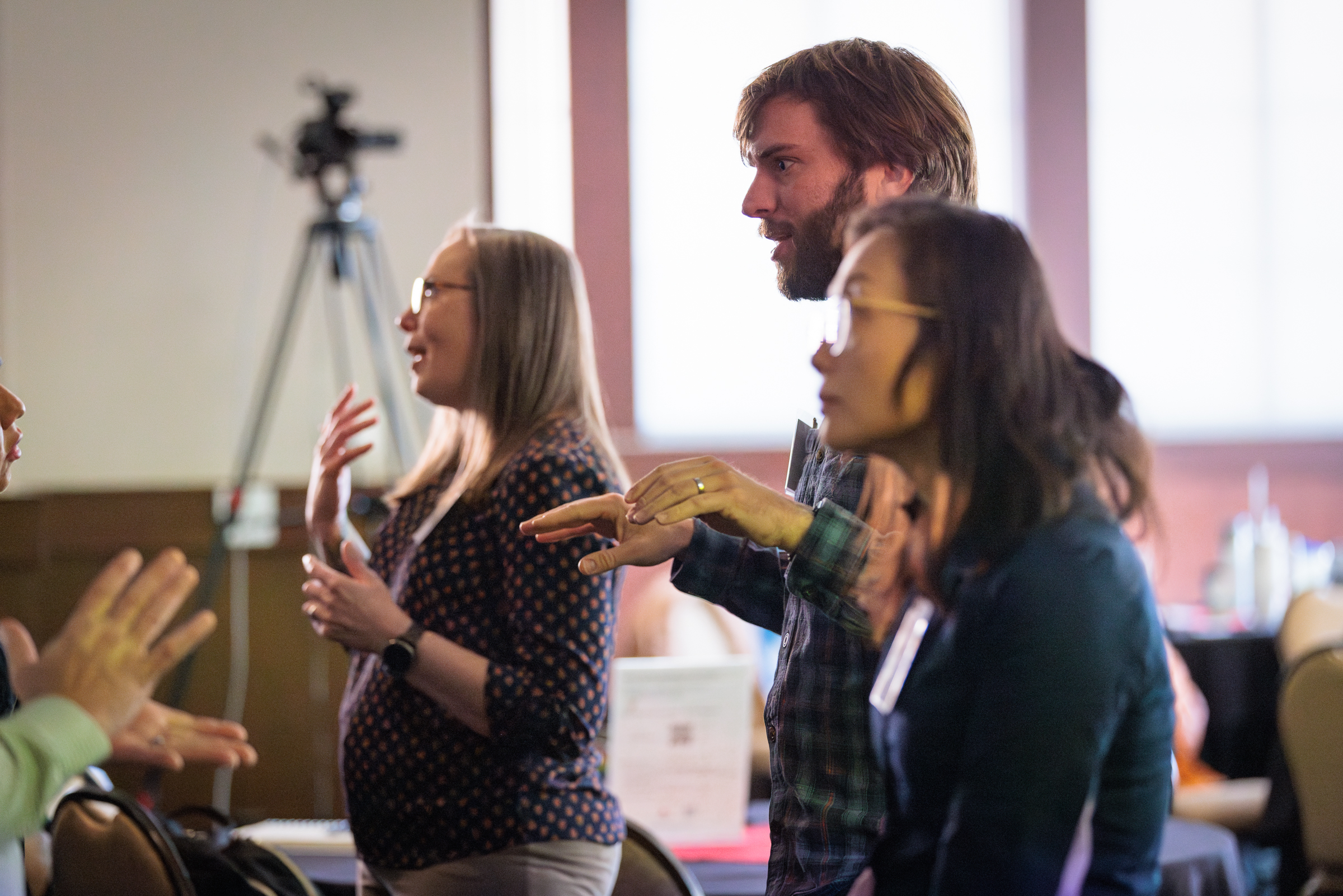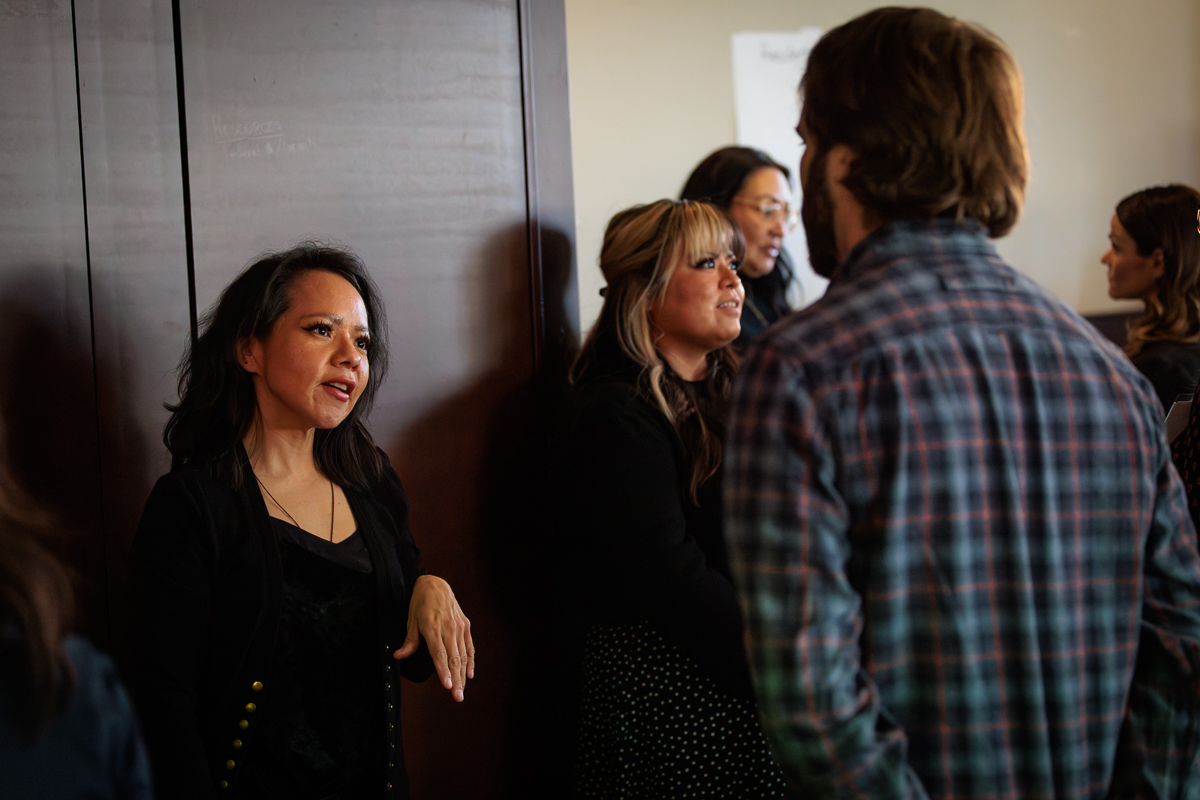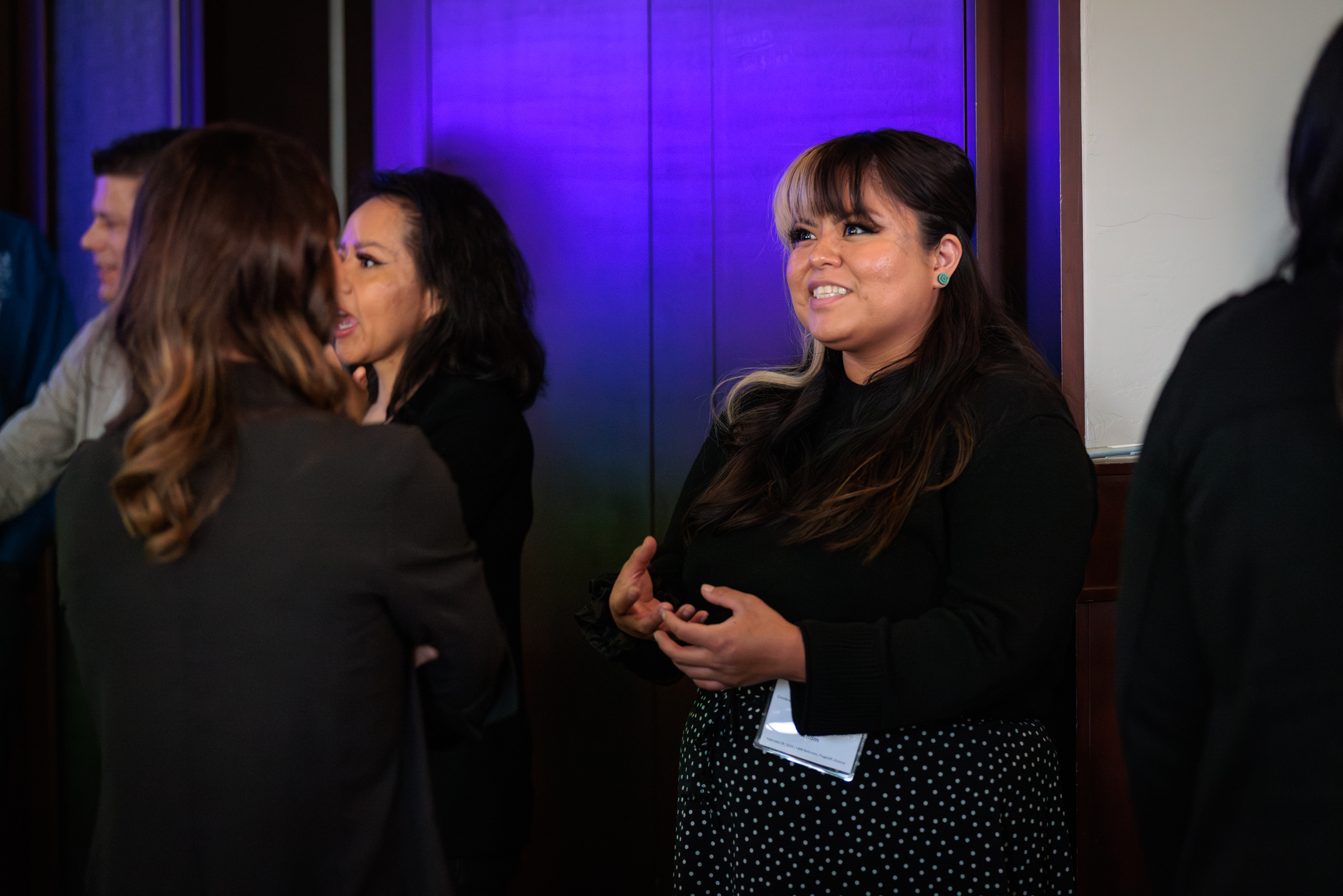Research, Collaboration, and Practical Training Provided Through ABRC Workshops
Research, Collaboration, and Practical Training Provided Through ABRC Workshops
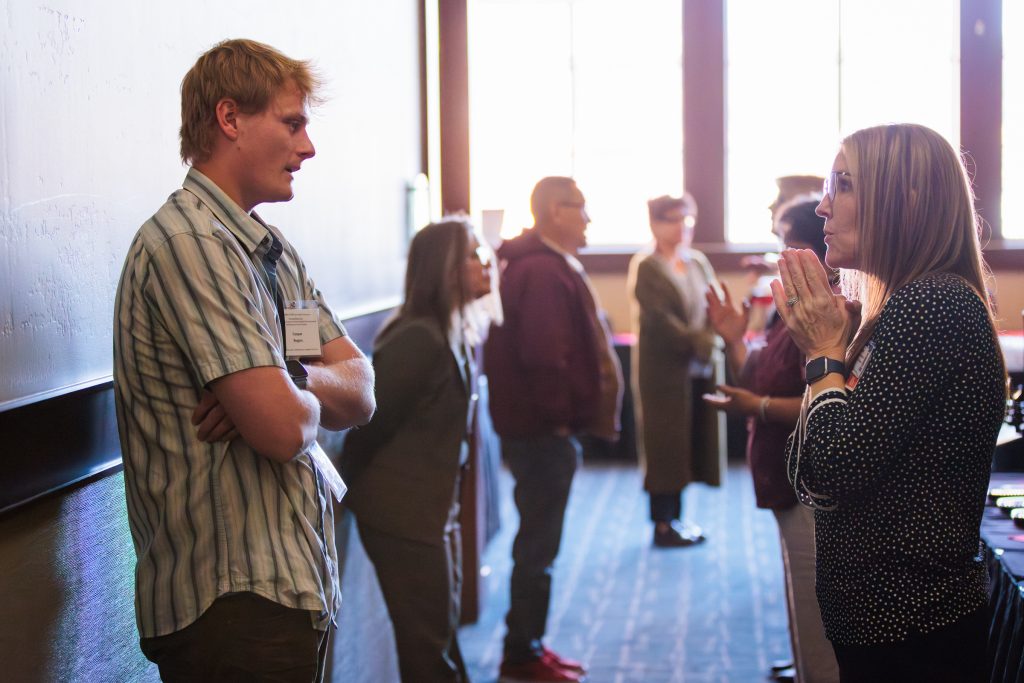
Northern Arizona University’s Center for Community Health and Engaged Research (CHER), in partnership with the Arizona Biomedical Research Centre (ABRC), is moving through the 2025 health research workshop series. In January and February, CHER hosted two impactful workshops designed to connect researchers, healthcare professionals, and community organizations across Arizona.
These sessions highlight the importance of hands-on training, collaboration across sectors, and the use of real-world data and tools to improve health outcomes.
Harnessing Health Data: Opportunities with the All of Us Initiative
The first workshop centered on the All of Us Research Program, a nationwide initiative to improve healthcare by gathering health and genetic data from over one million people across the country. Dr. Jason Karnes Dr. Jason Karnes, John A. and Frances P. Ware Endowed Department Head of Pharmacy Practice and Science at the R. Ken Coit College of Pharmacy at University of Arizona, explained how this data is already helping researchers tailor treatments and improve health outcomes.
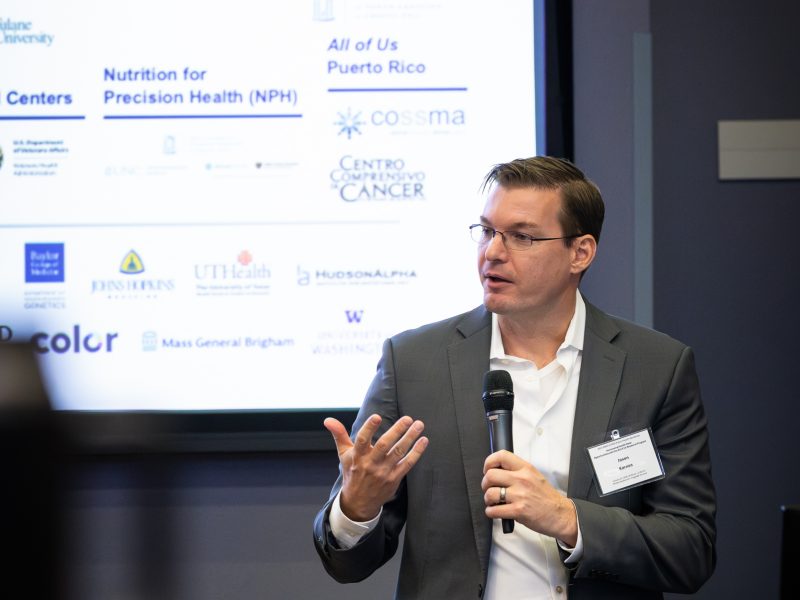
“One of the key tenets here is diversity and including individuals that have been underrepresented in biomedical research… this is not just about representation. This is about doing better science,” said Dr. Karnes.
The workshop gave participants an in-depth look at how biosamples, electronic health records, and wearable technology data are collected and integrated into a secure, usable research database. Questions from attendees reflected a broad interest in issues such as data privacy, recruiting healthcare providers to contribute information, and the potential implications of genetic findings on insurance coverage.
Tribal representatives raised critical concerns about data ownership and historical distrust in genetic research. Dr. Karnes acknowledged these concerns and emphasized that building trust remains an essential part of making this resource useful and inclusive.
Dr. Susan Holechek, Assistant Teaching Professor at the School of Life Sciences at Arizona State University shared how she has brought the All of Us database into the classroom to help train students in data analysis, research ethics, and real-world problem-solving.
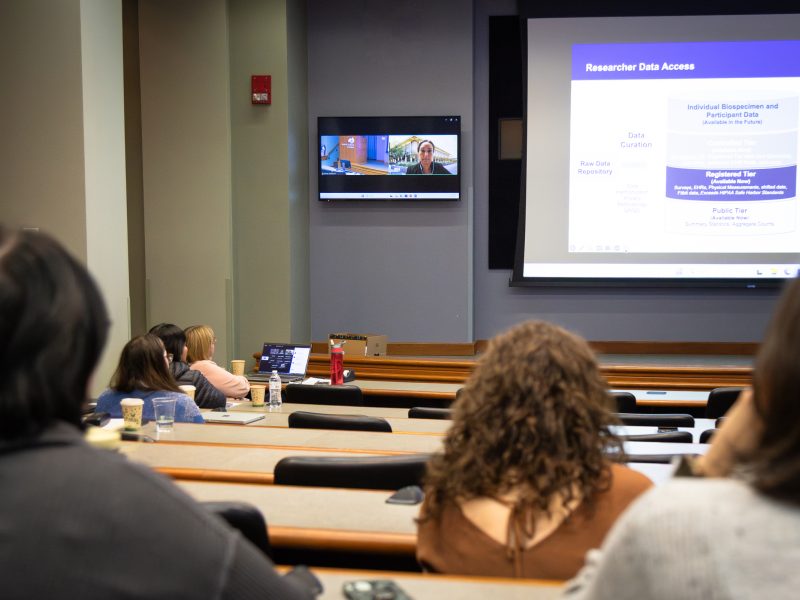
“Students really like to work with the database and that’s why they decide to volunteer and help the next generation. And that is happening in all my classes,” she noted.
This approach has led students to develop projects on topics like obesity, cardiovascular disease, and the use of genetic data in prescribing medications. ASU’s use of All of Us has opened opportunities for both in-person and online learners to engage in high-impact research and present their work at conferences across the state.
Pam Buzzard, Associate Librarian from NAU’s Cline Library also spoke about the research support available to the broader community: “While we do support students primarily, we are open to the public and available to anyone who would like to get help.”
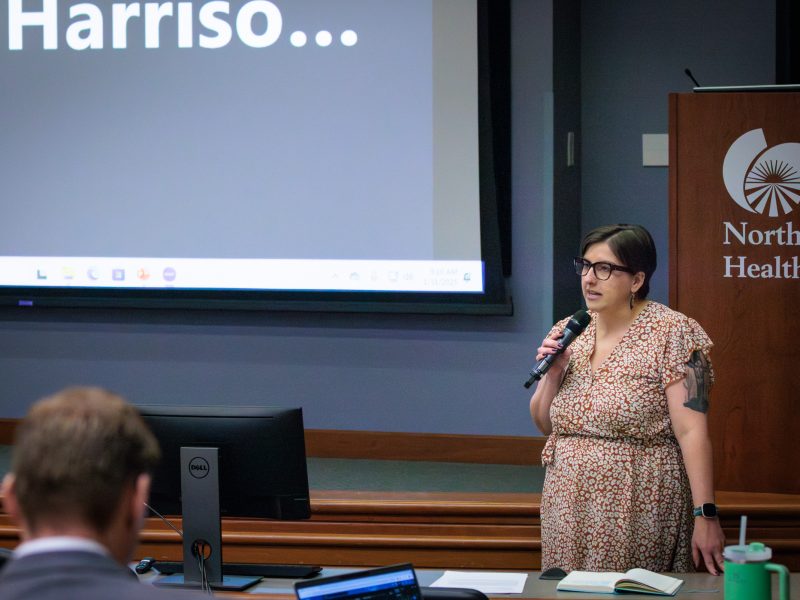
Del Yazzie, Director of the Navajo Epidemiology Center and member of the Navajo Cancer Workgroup, presented on his work leading an epidemiology center in Window Rock, Arizona.
His work focuses on leading the Navajo Nation’s leading disease surveillance efforts putting science and data into action and to help Navajo communities stay healthy.
During the workshop, he guided the attendees through the concept of tribal data sovereignty and how tribal health research is conducted through centers like the Navajo Epidemiology Center.
Yazzie is currently serving a 3 year term on the board of the Navajo Nation Human Research Review Board (NNHRRB). Since 1996, the NNHRRB has guided research priorities and regulations to guarantee ethical research for Navajo people while collaborating with leading scientists, healthcare providers, and community partners.
“Good things can come from research and partnering including genetic research,” assured Yazzie. “Navajo students [are] building that capacity to conduct, not just research but Public Health in general, for Navajo people and then publishing and presenting data to the community and tribal government.”
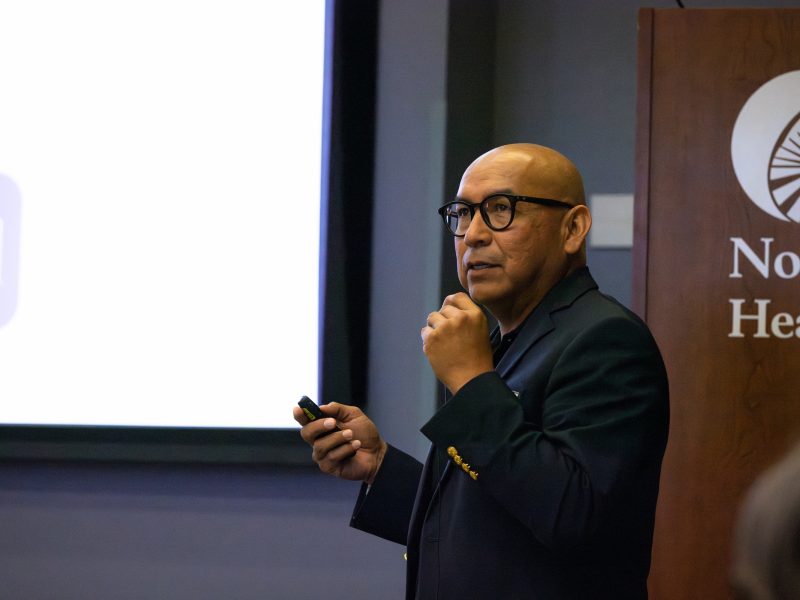
The session wrapped up with a discussion on growing academic-healthcare partnerships and exploring how research findings from the All of Us program can be used in practical ways to improve healthcare delivery.
You can watch “Harnessing Health Data: Opportunities with the All of Us Program” on YouTube.
Bridging Resources: Coordinating Culturally Centered Support for Individuals with Substance Use Disorders
February’s workshop focused on practical ways to improve care coordination and expand access to behavioral health services, especially in rural and underserved areas.
“My hope was that we would also come to learn where the gaps were in the system… and maybe start to brainstorm ways that we might fill those gaps so we could serve our patients better,” said Dr. Jennifer Conn, Medical Director and CEO of Flagstaff Emergency Physicians.
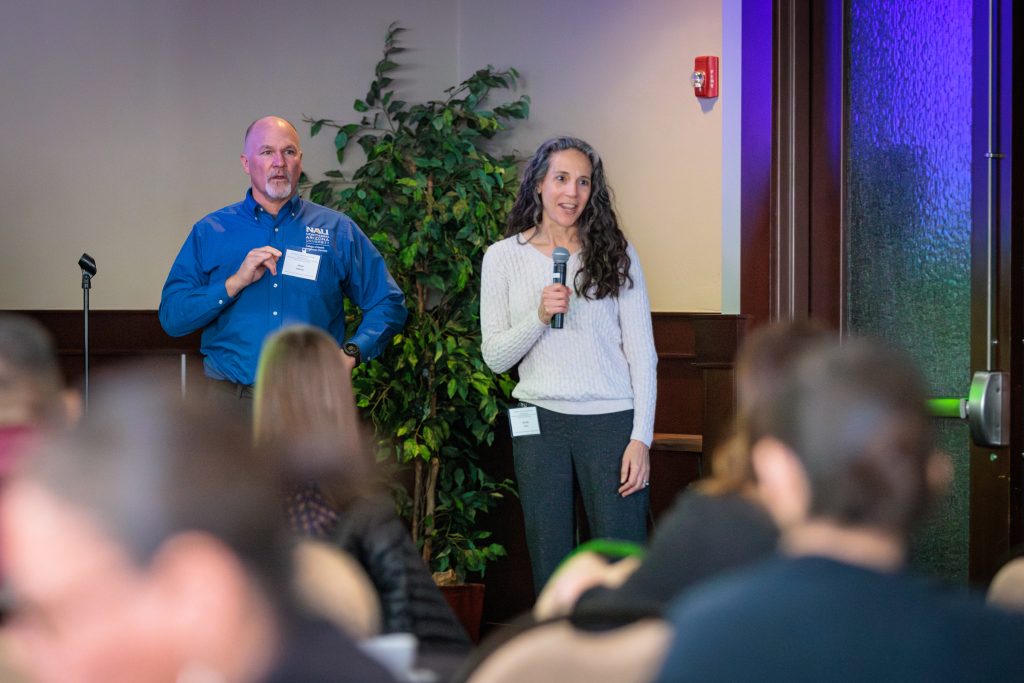
Keynote speaker Dr. Sara Gibson, a psychiatrist and expert in telemedicine, emphasized how virtual platforms are reshaping treatment for substance use disorders in Arizona.
“We are in a difficult time where people are lacking social connection… Telehealth, I believe, can be a bridge over physical distancing to provide us with more social connection,” she said.
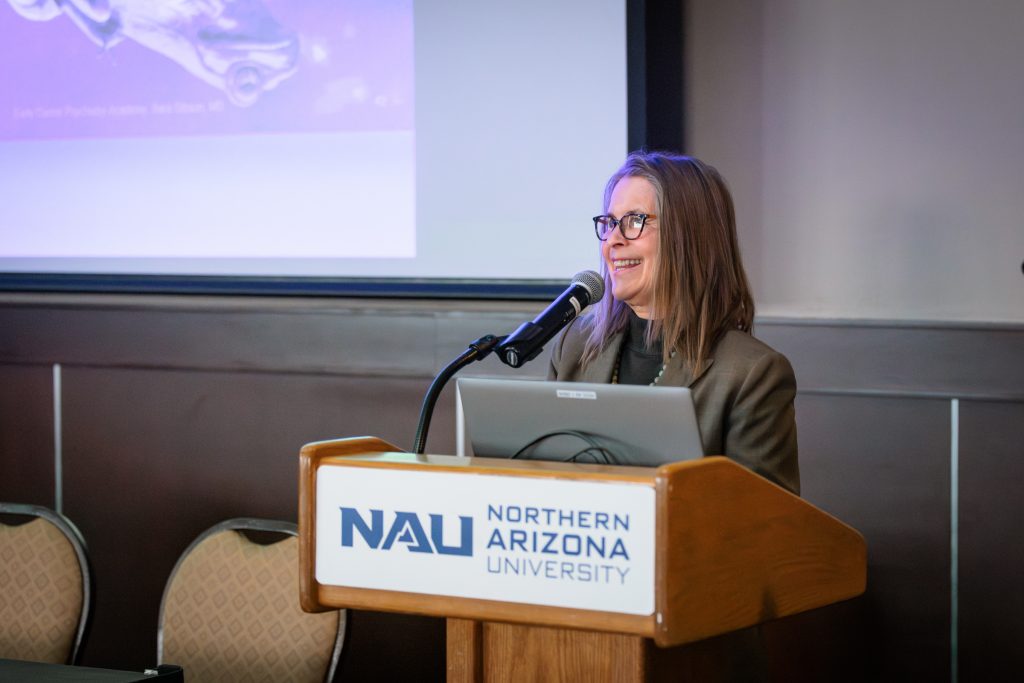
She also addressed the impact of changing federal policies on prescribing medications like buprenorphine, which is used to treat opioid use disorder. Many patients rely on telehealth to access care, and regulatory changes could significantly affect that access. Dr. Gibson encouraged continued advocacy for policies that support virtual treatment options.
After Gibson’s address, participants and speakers were invited to stand up and engage in a speed-networking activity where each person had a few minutes to learn more about each other and explore collaborative opportunities or specialty overlap. Many participants seemed interested in going a moment or two past the announcement to move on to the next person, demonstrating the sparks between attendees intended by the activity.
The panel discussion that followed featured behavioral health providers from across Northern Arizona, including Northern Arizona Healthcare, the Guidance Center, Crossroads Inc., Terros Health, Child and Family Support Services, and Southwest Behavioral & Health Services. Speakers shared the challenges of ensuring continuity of care, especially after inpatient treatment, and discussed the ongoing need for more psychiatric beds, especially for adolescents.
“A lot of times in our communities, people’s services are divided by funding source, which isn’t a shock… Our commitment is to work through that and coordinate services effectively,” said Dr. Chris Linskey of Encompass Health Services.
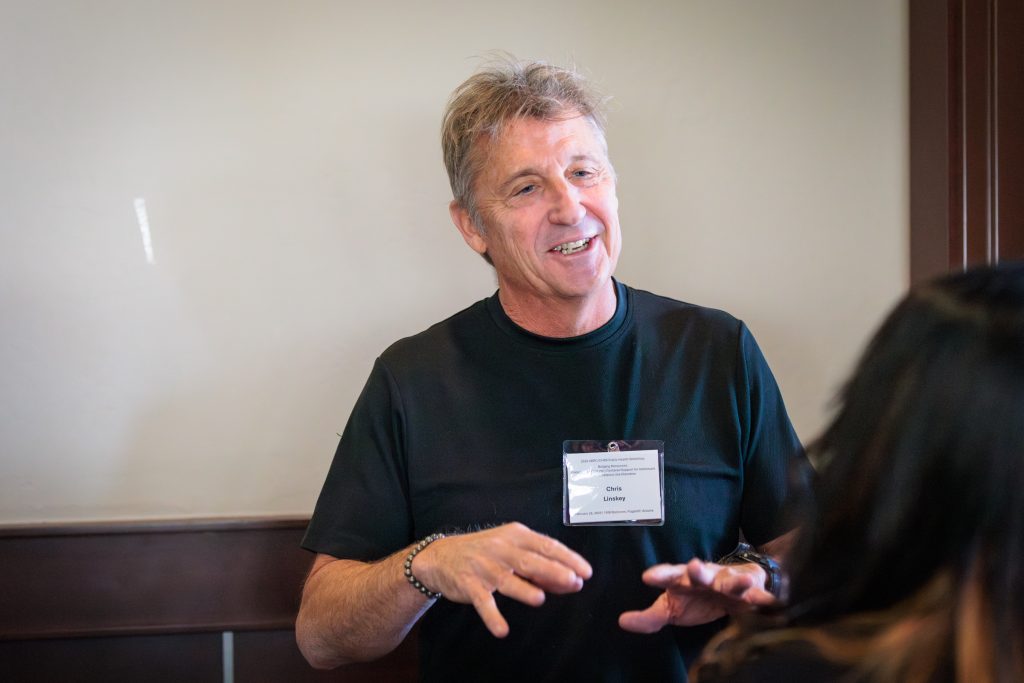
He also spoke about the long-term impact of training healthcare professionals locally: “We are doing this project because there’s such a need for psychiatrists throughout not just our local community here, but all of Northern Arizona… If you train them locally, a significant percentage will stay.”
The workshop closed with a networking exercise to help participants make new connections and strengthen local systems of care.
Upcoming ABRC Workshop
Beyond Weight: Optimizing Surgical Success through Strength and Health
? Friday, May 30, 2025
? 9:00 AM – 2:00 PM
? Flagstaff Medical Center, McGee Auditorium
Join us for the next ABRC workshop as we examine new approaches to surgical preparation that go beyond traditional weight-loss models. Instead of focusing solely on weight reduction (often linked to short-term results and long-term health risks) this session will explore the benefits of physical therapy, particularly strength training, in preparing patients for surgery.
Participants will learn about research-backed methods to improve recovery and long-term outcomes. Presenters will offer practical strategies that healthcare and surgical teams can use to support patients’ overall health and resilience before surgery.
Don’t miss this opportunity to explore new tools for better surgical outcomes and patient support. Workshop registration is required.
